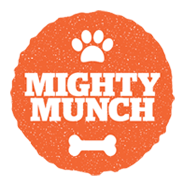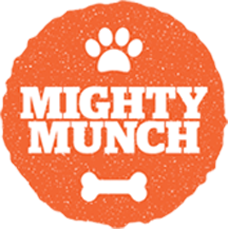
In recent years, there’s been a lot of hype around collagen. People take it to improve their skin hydration and elasticity, relieve joint pain, and promote bone health. Just like collagen can benefit our health, it can have some big health benefits for our dogs, too.
Dogs synthesize their own collagen, but as they age, this process becomes less effective. Often, your vet will recommend supplementing your dog’s diet with collagen, to make sure they’re getting enough of this essential nutrient. To keep your dog healthy later in life, and potentially even extend their years, collagen supplements are a must.
So, how much collagen should I give my dog? In this article, we’ll dive into the science of collagen for dogs, including how it works and why it’s so important to supplement your dog’s diet.
We’ll explain the factors that affect collagen dosing for dogs, and help you understand exactly how much collagen to give your dog to keep them healthy, happy, and living their best life.
Why Give Your Dog Collagen?
Collagen plays many essential roles in maintaining the health and vitality of various tissues in both humans and animals. For our canine companions, incorporating collagen into their diet can offer a range of potential benefits, and even extend their lives. Let’s take a look at why collagen for dogs is so important.
Supports Joint Health and Mobility
As dogs age, just like humans, they may experience joint stiffness and discomfort. Collagen is a vital component of cartilage, tendons, and ligaments, providing essential support to the joints. Collagen is one of the best joint supplements for dogs in order to prevent the effects of aging on joints.
By supplementing your dog's diet with collagen for dog joint care, you may help promote joint flexibility, reduce inflammation, and support improved mobility, particularly for senior dogs or breeds prone to joint issues. If you’re wondering how to help a dog with arthritis or looking for a dog joint pain home remedy, collagen supplements are a great place to start.
Promotes Skin and Coat Health
A thick, shiny coat and healthy skin are indicators of a dog's overall well-being. Collagen aids in maintaining skin elasticity and hydration, contributing to a shiny and soft coat while reducing the appearance of skin dryness and flakiness. Plus, collagen's role in wound healing makes it one of the best vitamins for dogs with minor skin irritations or injuries.
Aids in Digestive Health
A well-functioning digestive system is essential for proper nutrient absorption and your dog’s overall health. Collagen contains essential amino acids like glycine, which can support gut lining integrity and enhance digestive processes. By fostering a healthy gut, collagen may help address digestive issues, such as food sensitivities and irritable bowel syndrome.
As well as collagen, probiotics play an important role in your dog’s digestive health. If you’re wondering when to give a dog probiotics, it’s usually never too soon to start supplementing your dog’s diet with a natural probiotic. At Mighty Munch, we have the best dog probiotics formulated and recommended by vets, suitable for dogs of all ages and breeds.
Boosts Healing and Recovery
Collagen's role in tissue repair and regeneration extends beyond the skin. Injuries to muscles, tendons, and ligaments can occur in active dogs or during exercise. Collagen supplementation can assist in faster healing and recovery, helping your dog get back to their best as quickly as possible.
Helps Maintain a Healthy Weight
Obesity in dogs can lead to a host of health issues, impacting their quality of life. Obese dogs are more prone to diabetes, joint issues, and other serious conditions that can shorten their lifespans. Collagen is a protein source that helps your dog feel more full after they eat, which helps with weight management.
Promotes Heart Health
Collagen is present in the structure of blood vessels and arteries, and it contributes to the integrity of the heart's connective tissues. Collagen can also reduce artery stiffness and increase levels of good cholesterol. By supporting heart health, collagen supplementation may contribute to improved cardiovascular function in dogs, which could importantly help to extend your dog’s best years.
Strengthens Teeth and Nails
Dental health is essential for dogs, as dental issues can lead to pain and systemic health concerns. Collagen's presence in teeth and gums may support dental health, while its impact on nail strength can help prevent brittleness and breakage.
The Importance of Collagen Dosage for Dogs: Maximizing Benefits, Minimizing Risks
As well as asking should I give my dog collagen, it’s also important to ask how much collagen should I give my dog. But why is collagen dosing so important? Just like with any supplement, giving your dog the appropriate amount of collagen is essential for their safety and well-being. Let's explore the key considerations when determining how much collagen to give your dog.
Factors Influencing How Much Collagen to Give Dogs
So, how much collagen should I give my dog? The answer varies, depending on several key factors. Here’s an overview of the different variables to think about when deciding how much collagen your dog needs.
Size and Weight: How These Affect Collagen Dosage
Larger dogs generally require more collagen to meet their body's needs compared to smaller breeds. As a general rule, the larger the dog, the higher the dosage can be, but it is essential to stick to any specific recommendations made by your vet, as size and weight aren’t the only factors that affect your dog’s collagen dosage.
Age: Collagen Needs of Puppies, Adults, and Senior Dogs
During their rapid growth phase, puppies may benefit from higher collagen supplementation to support the development of healthy bones, joints, and connective tissues. Adult dogs require collagen for maintenance and preventive health benefits, including joint health, supporting a shiny coat, and improving skin health. However, adult dogs may require different amounts of collagen compared to rapidly growing puppies.
As dogs age, their natural collagen production may decrease, leading to joint stiffness, potential mobility issues, and other problems. Collagen supplementation can be particularly beneficial for senior dogs to support joint function, promote mobility, and aid in the healing of age-related tissue wear and tear. Older dogs may require the most collagen, due to their decline in natural collagen production.
Health Status: How Existing Conditions Can Influence Dosage
Dogs suffering from joint problems like arthritis or hip dysplasia may benefit from higher collagen dosages to support joint health and reduce inflammation. Also, dogs with skin allergies or coat issues may require collagen supplementation to promote skin healing, reduce dryness, and enhance coat appearance.
For dogs with sensitive stomachs or gastrointestinal conditions, collagen can be a gentle supplement to support gut health. Start with lower dosages and gradually increase to ensure your dog's digestive system adapts comfortably.
So, How Much Collagen Should I Give My Dog?
Ok, so how much collagen should I give my dog based on the factors at play? While we can’t give exact values for your dog, here are some recommendations and guidelines to help you safely incorporate collagen into your dog’s diet.
Breaking Down the Dosage: Recommended Amounts Based on Size, Age, and Health
The general guideline for collagen dosage is typically based on your dog's weight. A common recommendation is to give approximately 1 to 2 grams of collagen per 10 pounds of body weight.
For example, if your dog weighs 30 pounds, the starting dose would be around 3 to 6 grams of collagen per day. As always, make sure you check the specific product's packaging or consult your veterinarian for more accurate dosing instructions.
As we mentioned, the age of your dog also affects collagen dosage. Puppies in their growth phase may benefit from a slightly higher dosage to support healthy development, while senior dogs may require more collagen to address age-related joint and mobility concerns. Adult dogs typically fall within the standard recommended dosage guidelines.
Similarly, dogs with specific health conditions may have different collagen needs. For joint issues, such as arthritis or hip dysplasia, the collagen dosage may be adjusted to support joint health. Dogs with skin or coat conditions may also receive higher collagen doses to promote skin healing and coat improvement. Make sure you talk to your vet to establish the best plan for your dog’s collagen intake.
How to Adjust Dosage Over Time: Tips and Guidelines
When introducing collagen to your dog's diet, start with the lowest recommended dose and gradually increase if needed. This lets you monitor your dog's response to collagen and minimize the unlikely risk of any side effects.
If you notice significant improvements in your dog's joint health or skin condition, you might be happy to stick with your dog’s current dosage of collagen. On the other hand, if your dog's needs change, your vet can guide you in modifying the dosage of collagen safely.
Beyond the Collagen Dosage, Consider These Factors When Giving Your Dog Collagen
Understanding how much collagen should I give my dog is important, but there are a lot of other factors to think about when it comes to supplementing your dog’s diet with collagen. Here are some of the other general factors to consider when adding collagen to your dog’s diet.
When to Start Your Dog on Collagen Supplements
If you’re wondering what age should you start giving your dog joint supplements like collagen, there’s a simple answer: Today! While collagen can benefit dogs of all ages, starting collagen supplements early in your dog's life, especially during their growth stages, can aid in preventive care. This approach may help support their joint health, skin, and coat, setting the foundation for a healthier, more active, and longer life.
What to Look For When Choosing a Quality Collagen Supplement
Unfortunately, not all collagen supplements will benefit your dog, and some may even be harmful to their health. When you’re choosing a collagen supplement for your dog, make sure you’re reading the ingredients list and avoiding collagen that has any artificial colours, flavours, or fillers.
Also, find a collagen supplement that’s recommended by vets. If you’re wondering how to improve dog joint health or make your dog’s coat shinier than ever, high-quality collagen with a proven track record is exactly what you need. Either ask your vet for a recommendation or find a collagen supplement with testimonials or endorsements from vets.
At Mighty Munch, our premium collagen for dogs checks all the boxes. Considered one of the best collagens for dogs in Australia, our vet-developed formula is trusted and loved by thousands of pet parents across Australia. Safe for dogs of all breeds and ages, our proven collagen exceeds Australia’s pet health standards and is manufactured right here in Australia, in a human-grade facility.
Additional Nutritional Support: What Else Your Dog Might Need Alongside Collagen
How much collagen should I give my dog, and what else do they need? Collagen isn’t the only supplement that’s essential for your dog’s health and longevity. At Mighty Munch, we have other hip and joint supplements for dogs, ideal for all sorts of joint conditions, like a dog with a swollen hock joint but no pain, a dog’s swollen front leg joint, or a dog’s hip clicking when walking.
Other dog supplements like probiotics for dogs are also essential for your dog’s digestive system, immunity, and overall health. You can find all the essential supplements your dog needs (and so much more!) right here at Mighty Munch
Wrapping Up Our Guide to How Much Collagen to Give Dogs
So, how much collagen should I give my dog? As you can see, supplementing your dog’s diet with collagen is essential to keep them in good health and by your side for many years to come. From protecting your dog’s joints to keeping their coat shiny and skin healthy, collagen is a critical component of your dog’s diet.
The exact dosing of collagen is different for every dog. It depends on your dog’s size, age, specific health conditions, and several other factors. Make sure you follow the manufacturer’s instructions for collagen dosing and talk to your vet if you’re not sure. Also, invest in a quality collagen supplement, like our vet-backed collagen from Mighty Munch.
At Mighty Munch, we pride ourselves on delivering premium, safe, and effective supplements that give your dog everything they need, and nothing they don’t. As well as supplements, we also have the best calming dog bed, which not only helps anxious dogs sleep peacefully, but also protects your pup’s joints while they rest. For stubborn pet smells, our pet odour remover has a potent, natural formula that leaves your carpets and furniture smelling fresh and clean.
Collagen is an essential part of your dog’s diet, and collagen supplements can have a dramatic impact on your dog’s overall health, quality of life, and longevity. Extend your dog’s best years with premium collagen supplements from Mighty Munch.


